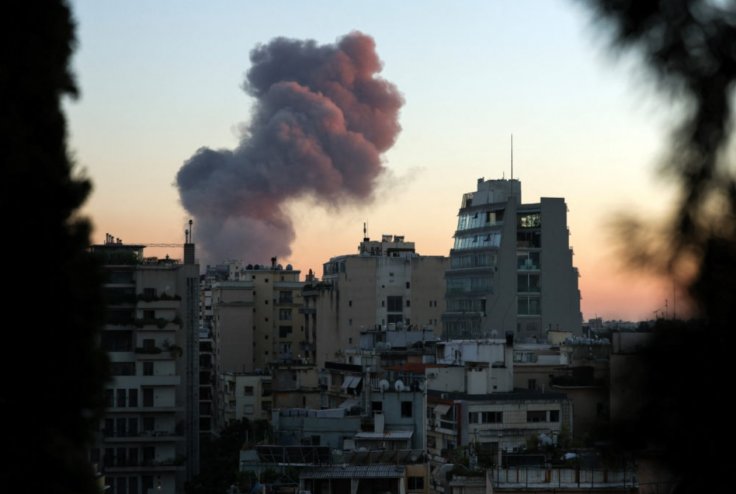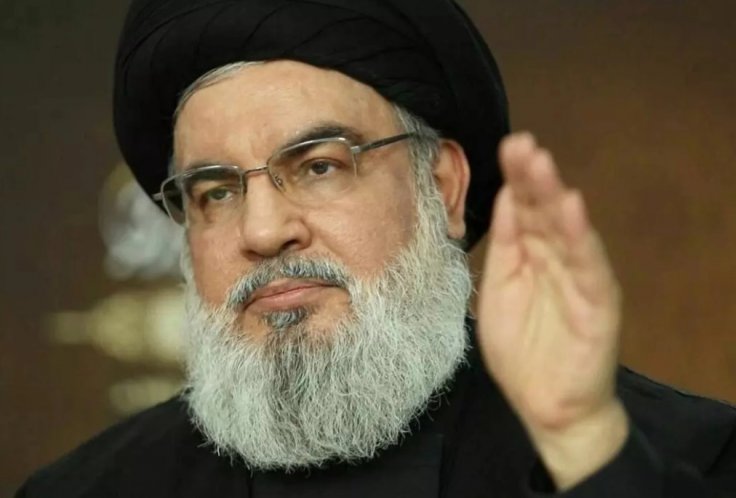Israel launched its most powerful strike yet on Hezbollah's main HQ in Beirut on Friday, sending a barrage of missiles believed to be aimed at the Iran-backed group's ferocious leader. However, it's still unclear if Hassan Nasrallah, the head of the terror group, was taken out or managed to survive the attack.
If the strike was successful, it would mark the fourth assassination of a Hezbollah leader this week after Israel claimed killing other top leaders in airstrikes. Israeli Defense Forces spokesman, Rear Adm. Daniel Hagari, said in a Friday night update that the military was still looking into the outcome of the missile attack on Hezbollah's Beirut headquarters.
Israel Unleashes Attack on Beirut

The IDF later announced it had "eliminated" Muhammad Ali Ismail, the commander of Hezbollah's missile unit in southern Lebanon, along with his deputy, Hussein Ahmad Ismail, and other "leaders and operatives." Hezbollah has yet to confirm their deaths.
Hagari also issued a warning that the Israeli military plans to soon target Hezbollah's underground weapon depots located beneath three buildings in Beirut's Dahiyeh suburb, advising nearby residents to evacuate.

"Move as far away from the buildings as possible before the strike. In a short time we will attack the weapons stored beneath the buildings," Hagari said in a video statement Friday evening.
"The explosion, because of the missiles, may damage the structure and could potentially cause them to collapse."
Hagari also said that Israeli aircraft are monitoring Lebanese airspace and will prevent "enemy flights with weapons" from landing at Beirut Airport, as reported by the Times of Israel. "This is a civilian airport, for civilian use, and it must stay that way," he added.
The massive explosions "leveled six buildings," with the shockwaves reaching as far as 19 miles north of Beirut. Thick clouds of orange and black smoke filled the sky.

At least two people have been confirmed dead and 76 injured, but Lebanese officials expect the number of fatalities to increase as recovery efforts continue.
Videos showed rescue teams scrambling over large sections of broken concrete, surrounded by piles of twisted metal and rubble. Residents were also spotted collecting their belongings and evacuating the area.
"They are residential buildings. They were filled with people. Whoever is in those buildings is now under the rubble," Lebanon's health minister, Firass Abiad, told the New York Times.
Attack Comes after Netanyahu Warning
Hagari described the strike as a "precise strike" targeting Hezbollah's headquarters, which he claimed were located "under residential buildings in Beirut in order to use them as human shields."

The assault took place shortly after Israeli Prime Minister Benjamin Netanyahu spoke at the UN, pledging to continue Israel's offensive against Hezbollah.
It also came just an hour after thousands gathered for the funeral of a prominent Hezbollah commander who had been killed the previous day.
This attack signifies a significant escalation in the conflict between the two heavily armed enemies, heightening concerns of a full-scale war in the region.
Israel has launched four strikes on the city within the past week, resulting in at least 700 deaths and the elimination of three senior Hezbollah military leaders. However, this was the most extensive assault on Beirut since the conflict began nearly a year ago, following the Iran-backed Hamas group's surprise cross-border attack on Israel, which claimed the lives of nearly 1,200 people.








